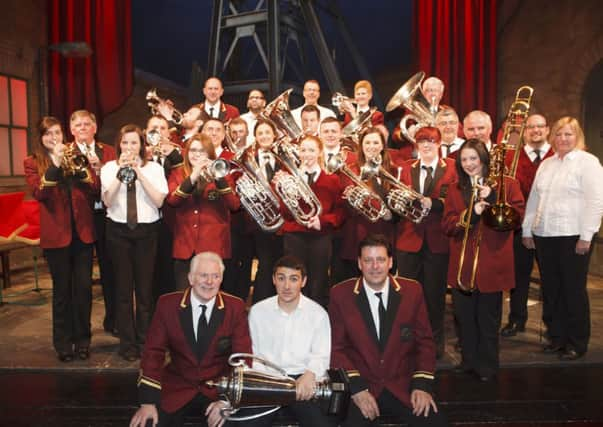Theatre Review: Brassed Off, Edinburgh


Brassed Off - King’s theatre, Edinburgh
****
The story starts in a low key, as our young narrator Shane – played with terrific wide-eyed charm by Luke Adamson – tells us of a time a dozen years after the big miners’ strike of 1984, when the pit in his home town of Grimley was finally facing closure. In theory, the men were to vote on whether to fight on, but in practice, management knew that the paltry closure offer of £23,000 each would prove too tempting, when the alternative was only more uncertainty.
So the action begins, on Dawn Allsopp’s stylised street-and-pithead set, with jokes and argument and undercurrents of loyalty and betrayal, the classic stuff of working class drama.
Advertisement
Hide AdThere comes a moment, though, when Shane’s dad Phil finally arrives late at band practice, clutching his knackered trombone, and fearing the wrath of his own dad, Danny, the dedicated band-leader.
The band – played in Edinburgh by the great Dalkeith and Monktonhall Brass Band – strike up The Floral Dance and as the music soars out into the auditorium, the air shudders and comes alive.
For this sound is the absolute embodiment of what ordinary human beings can achieve when they band together, in harmony and solidarity, and from that moment, Allen’s play has not only a good heart and a strong mind, but a theatrical soul that makes it unforgettable.
The show also has a background score of late-20th century hits, though, as the story moves from comedy and political argument towards tragedy, and both Phil and Danny face the possibility of death.
There are thrilling performances, along the way, from John McArdle as Danny, and from Clara Darcy, who, as the gorgeous young band recruit and covert management worker Gloria, plays the beautiful, complex flugelhorn solo from Rodrigo’s Concerto De Aranjuez live on stage.
In the end, though, this is a show about the whole 13-strong ensemble and the band; about the spirit of community, and how it can be torn apart both by inevitable change, and by what seems, in the case of the British mining industry, to have been a deliberate campaign of destruction – one that framed these men and women as the “enemy within”, and no longer part of the Land Of Hope and Glory whose anthem they play, with passion and anger, as the curtain falls.
Seen on 29.04.14